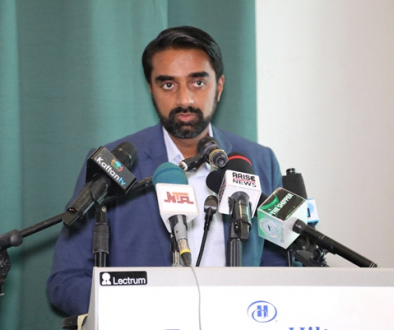Unfolding a National Strategy to Combat Corruption
So far, our approach to combating corruption as a nation has failed because it doesn’t reflect the systemic, endemic and pervasive nature of the problem. For what is essentially a societal problem involving the private sector, public sector, civil society, and the public in general, we have charged only the public sector with curbing it and defined corruption as something mainly the public sector engages in – surely this has to change if any real progress is to be made.
Dear President Buhari, now that you are in office, you need to focus on Job #1: unfolding a National Strategy to Combat Corruption. We know that the challenge is enormous and that is why we voted for you – because we believe you are committed to making this change happen. Careless behavior of our leaders from 1953 to date has left us uncertain, doubtful and fearful of what position we should take over the issue of corruption. The poor leadership examples over the years have pressured our value system to the extent that standards are no longer absolute things but are relative, fluid and situational. This fungibility introduced into our value systems has made it difficult for us to check and control deviant behavior as social tolerance for corruption is widespread in Nigeria – many of us don’t want it to change because we feel it might still work for us. So, Mr. President, that is why we tend to stand by and watch as people act with impunity because there is the hope that it might soon be our turn. Sadly, our weak sanctions against this deviance lets many people take undue advantage, creating a groundswell of pressure from those eager to profit in the same way, and the perverse incentives over the decades have institutionalized corruption in our society.
So far, our approach to combating corruption as a nation has failed because it doesn’t reflect the systemic, endemic and pervasive nature of the problem. For what is essentially a societal problem involving the private sector, public sector, civil society, and the public in general, we have charged only the public sector with curbing it and defined corruption as something mainly the public sector engages in – surely this has to change if any real progress is to be made. The public sector agencies we have charged with combating corruption have chosen to simplify the problem by dividing their interventions into three areas: public enlightenment, prevention, sanctions and enforcement. They have done very poorly at public enlightenment and corruption prevention, given that corruption has gotten worse year on year, and preferred a focus on attempting sanctions and enforcement.
Mr. President, they have complained that lawyers, judges and other actors in the administration of justice system have frustrated their work, which is true but given the obvious gaps in their approach, we are not surprised they have not made enough progress over the years. Their approach has also done nothing to address the perverse incentives that generate so much tolerance and accommodation of corruption and the corrupt. We believe that when the people finally act against it, corruption will stop. We have to break up the collusion that enables corruption to fester unchecked. We have to ensure there is no hiding place for the corrupt in our communities. We have to create a counter culture – one that thrives on integrity – “doing the right things and doing things right”.
Practically, it would mean any business that has not implemented prescribed corruption prevention mechanisms should not be allowed to participate in public procurement. It should mean any company that is a corruption risk cannot receive a bank guarantee from the government. It could mean any CSO that is a corruption risk cannot engage in collaborative efforts with MDAs.
Your Excellency, a National Strategy to Combat Corruption based on doing more of the same will definitely fail. Sir, many of the individual issues to do with sanctions and enforcement need to be worked on now, but the results will take more than a generation to materialise. Public enlightenment should be intensified into public engagement but changes in our value system will take more than a generation to re-orientate but these are things we must start doing now. I humbly suggest that the opportunity for step change as opposed to mere incremental change would come from achieving what we haven’t achieved before and from including everyone implicated in it, rather than just the public sector actors. It would also appear that we need, at least, a two-track strategy: one that strengthens our weak sanctions and enforcement system and rebuilds our collective value-system (to rebuild our institutional base) and the second focused on re-aligning incentives and preventing corruption (to ensure in the meantime the problem doesn’t get any worse than it already is).
To re-align incentives and prevent corruption at the same time, we would like to suggest that the most effective tool could be around how Your Excellency employs the instrumentality of the federal budget. Sir, you could insist that anyone who is a corruption risk should cease to have any access to any part of the national budget. Practically, it would mean any business that has not implemented prescribed corruption prevention mechanisms should not be allowed to participate in public procurement. It should mean any company that is a corruption risk cannot receive a bank guarantee from the government. It could mean any CSO that is a corruption risk cannot engage in collaborative efforts with MDAs.
What it would mean, Sir, is that you would force a public debate around our incentives and what we are each prepared to do to prevent corruption.
It could mean MDAs that are a corruption risk receive cash releases only against proof of proper utilisation of funds. It could mean that states seeking to raise finance from capital markets receive federal government guarantees only if they put certain corruption prevention procedures in place. It could mean SMEs accessing money from the SMEIS fund are only allowed to do so if they are not a corruption risk. It could also mean companies are allowed to participate in a subsidy scheme only if they are not a corruption risk and so on. What it would mean, Sir, is that you would force a public debate around our incentives and what we are each prepared to do to prevent corruption. It would mean you stop the haemorrhaging of public funds through corruption whilst we strengthen the underlying institutions to sustain behavioural change over the long run.
Your Excellency, till we see the unfolding of your National Strategy to Combat Corruption, please received assurances of our highest regards. Signed, Nigerians for Change.
Soji Apampa, the co-founder of The Integrity Organisation, can be reached at Twitter: @sojapa, and email: soji.apampa@integritynigeria.org.



